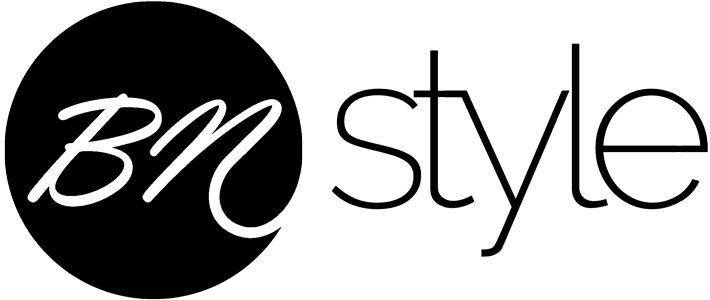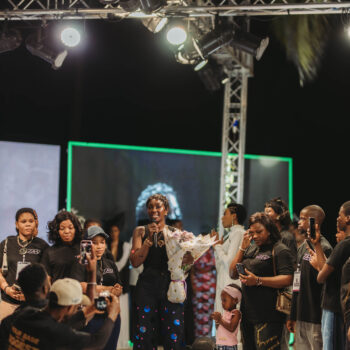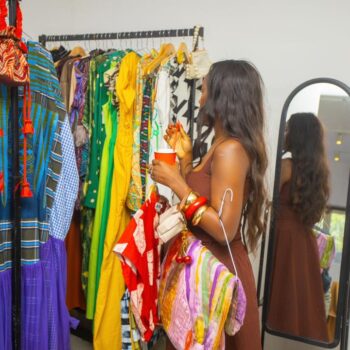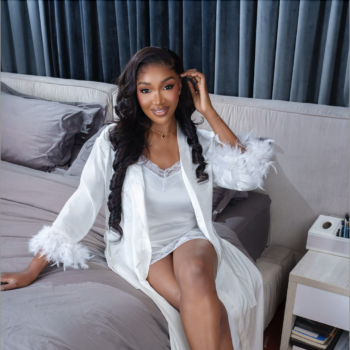Business of Fashion has unveiled their sixth annual BoF 500 list, the definitive professional index of the people shaping the $2.4 trillion fashion industry, hand-selected by the editors of The Business of Fashion, based on hundreds of nominations received from current BoF 500 members, extensive data analysis and research.
The list puts the spotlight on the most influential entrepreneurs and businessmen and women responsible for shaping the global fashion industry.
See the African game-changers that made the 2018 cut below.
Adut Akech
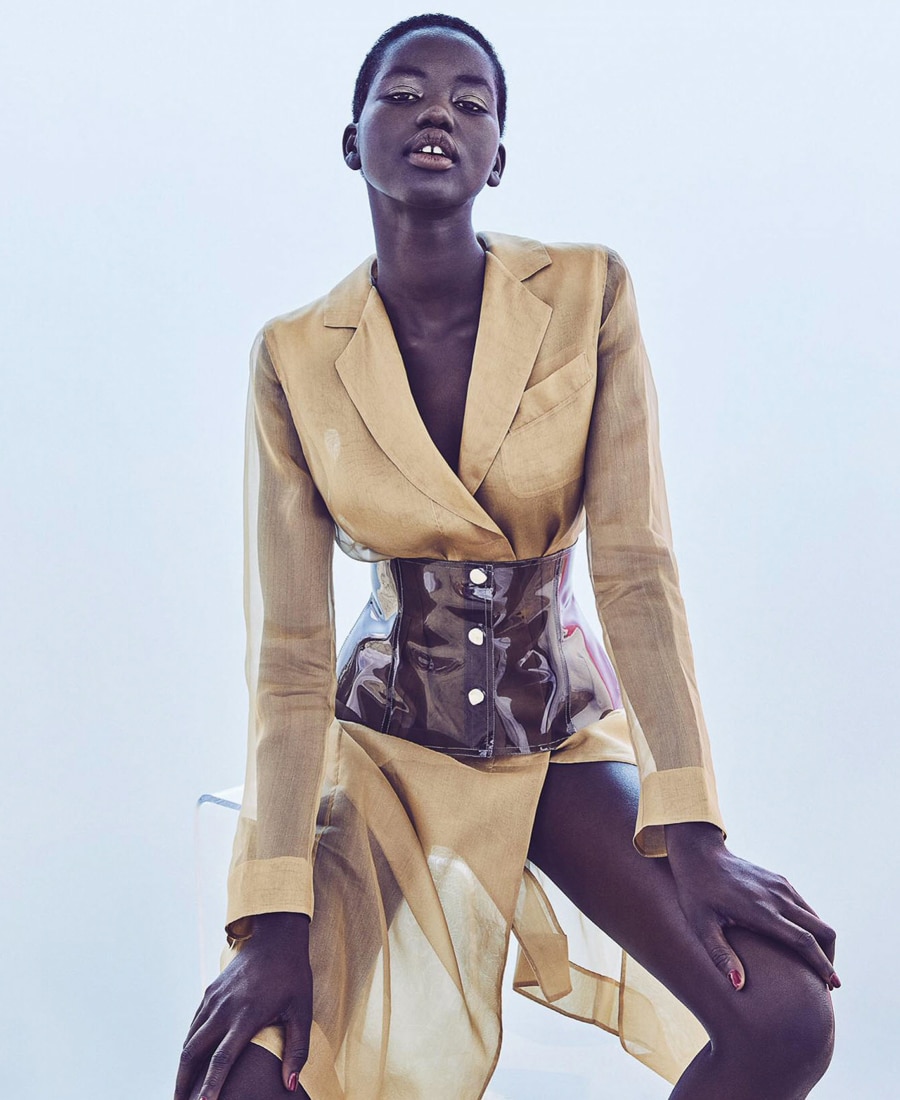
Since signing an exclusive with Saint Laurent for the Spring/Sumer 2017 show, Adut Akech has become one of the industry’s new faces to watch.
Born in South Sudan, Akech was raised in Kenya and moved to Australia, aged six, with her mother and five siblings as South Sudanese refugees. Despite being scouted by local agencies aged 13 and 14, she started her modeling career at 16, signing to Chadwick Models in Sydney, Australia.
Adwoa Aboah
British model Adwoa Aboah worked as both a stylist and creative director before prompting an industry-wide intake of breath after Tim Walker shot her for the cover of Vogue Italia. Her frank and honest account of her battle with addiction and depression along with her Gurls Talk project, which gives young women a platform to discuss feminist issues, have made her one of the industry’s most courageous voices.
After being discovered at a university homecoming party, Anok Yai became the first black model to open a Prada show since Naomi Campbell in 1997 and has appeared in the brand’s Spring/Summer and Pre-Fall ad campaigns, fast becoming one of the new faces to watch.
Edward Enninful
View this post on Instagram
Edward Enninful is editor-in-chief of British Vogue. He succeeded Alexandra Shulman, who resigned in January 2017, in August of the same year. Enninful joins the title after a six-year stint as style director of W Magazine. Since taking the helm of the British publication, he has put Rihanna and Oprah on the cover, and overseen a 1.1 percent increase in the magazine’s circulation amid a drop in overall circulation of British publications.
Halima Aden
The hijab-wearing model has been redefining traditional standards of beauty, diversifying the modeling industry and outwardly representing Muslim women — who have hitherto been scarce in the modeling industry — both on the catwalk and in an editorial capacity.
Imaan Hammam
View this post on Instagram
The rising supermodel is one of the hottest new faces in the industry and the name on every casting director’s lips.
With over 550,000 Instagram followers, Hammam promotes diversity within the industry to her extensive audience on social media. “I want to be a role model for young girls who are struggling with racism or struggling with their looks or with their skin colour,” she said. “There aren’t many Arabic models, and being an African-Arabic model, I’m trying to open doors for more Arabic girls.”
Jenke Ahmed Tailly
Jenke Ahmed Tailly is a stylist who has worked with Beyonce and Kim Kardashian, and whose editorial work is largely inspired by his African heritage.
Alongside his work with celebrities, Tailly is a creative director and consultant, having worked with British, US and Italian Vogue, GQ, Garage and The Gentlewoman magazines. He has also worked on campaigns for H&M and Benetton and styled shows for Yeezy and Sophie Theallet. In 2016 Tailly was the creative director for L’Officiel’s “Gang of Africa” issue which ran with the theme “black beauty matters” and featured singer Ciara and model Iman.
Khanyi Dhlomo
The media mogul, who has recently acquired the license for the South African edition of ELLE magazine and co-founded multi-brand luxury store Luminance, is fast becoming one of the country’s leading fashion players.
Dhlomo serves on the advisory board of the University of Stellenbosch Business School. In 2010, she was selected as a World Economic Forum Young Global Leader.
Omoyemi Akerele
Founder and artistic director of Style House Files, a creative development agency for Nigerian and African designers, Omoyemi Akerele is widely regarded as a driving force behind the burgeoning Nigerian fashion industry. A pioneering agency in image consultancy and creative direction within the West African country, Style House Files works with Nigerian brands on brand positioning and retail strategies. Akerele also helps brands gain essential international exposure by presenting showcases at Pitti Immagine in Italy, and through Lagos Fashion and Design Week.
Ibrahim Kamara
Ibrahim Kamara is a British stylist who challenges conventional notions of menswear and masculinity with his distinctive styling and art direction through his work for the likes of Stella McCartney, Burberry, and Dior.
Born in Sierra Leone, Kamara grew up in the Gambia before moving to London aged 11.
Diana Opoti
The Kenyan television producer and fashion consultant is becoming the nexus for pan-African fashion industry initiatives and one of the continent’s most ambitious industry leaders, having launched Kenya’s first fashion consultancy and PR firm.
In 2014 Opoti was listed as one of Africa’s most influential 100 people of the year by the New African. She has also featured in CNN’s African Voices programme.
Reni Folawiyo
Nigerian businesswoman Reni Folawiyo is the founder of Alara, a concept store in the heart of Victoria Island, Lagos that seeks to redefine luxury fashion for Nigerians. Meaning “wondrous performer” in Yoruba, Alara is rapidly becoming a fashion destination for Nigerians and westerners alike. It offers a mix of fashion, art and design in a similar style to famous concept stores like Paris’ Colette, London’s Dover Street Market and Milan’s 10 Corso Como. It stocks a range of western designers including Stella McCartney , Dries Van Noten , Marni and Valentino. Alongside this, Folawiyo looks to champion Nigerian design, stocking the work of Maki Oh, Lanre da Silva Ajayi, and Tiffany Amber. Alara has the potential to be a beacon for other fashion retailers and a centre for gravity for global luxury brands already beginning to cluster around a nascent fashion district in Lagos.
Tayo and Ayo Amusan
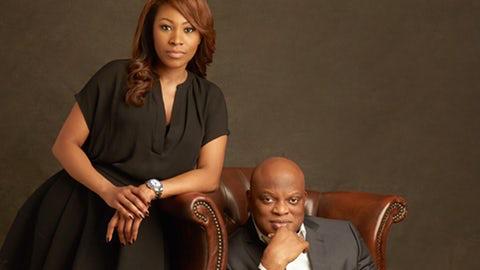
“Tayo and Ayo Amusan are a couple with a vision to grow the Nigerian retail sector at a steady pace,” said Omoyemi Akerele. “Persianas [their development company] built the first mall of international standards in Nigeria and currently own five spread across Nigeria in Lagos, Ibadan, Kwara, Enugu and soon to be launched Abuja. The company’s retail arm has successfully launched franchises such as Hugo Boss and Lacoste.”
While Tayo is focused on the property aspect of Persianas, Ayo oversees its retailers. Appointed director of retain in 2011, Ayo has been involved in the retail industry since 1998. She holds an MSc in Risk Management from Cass Business School, City University, London, the city in which she began her career working in strategy and budgeting. It was Ayo who led Persianas’ negotiations to secure the Hugo Boss, Puma and Lacoste franchises.
See the full BOF 500 list and read the complete biographies on www.businessoffashion.com
